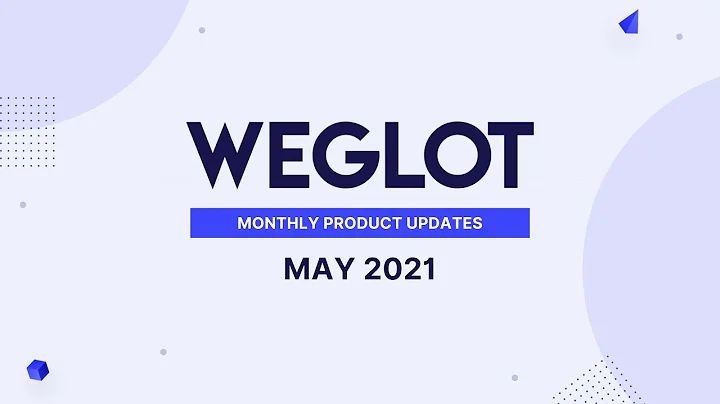3 Critical Steps for Successful Facebook Ads
Table of Contents
- Introduction
- Proof of Concept and Market Fit
- What is Proof of Concept?
- Finding Your Market Fit
- Organic Marketing and Its Importance
- Key Performance Indicators (KPIs)
- Building Social Proof
- Importance of Social Proof
- The Role of Followers and Engagement
- Strategies for Building Social Proof
- High Converting Website
- The Importance of a High Converting Website
- Key Factors for Website Conversion
- Tips for website optimization
- The Role of SEO in Website Success
- Cost-Effective Marketing Strategies
- Email Marketing
- Influencer Marketing and User-Generated Content
- Maximizing the Impact of Email Marketing
- Leveraging Influencer Marketing and UGC
- Conclusion
3 Things You Need to Do Before Starting to Run Ads for Your E-commerce Business
Running ads has become essential for e-commerce brands to expand their reach, attract new customers, and consistently grow their revenue. You've probably seen ads from both big-name brands with millions of followers and smaller shops with only a few thousand. But when is the right time for you to start running ads for your e-commerce brand? This article will guide you through a checklist of three important things you need to do before diving into running ads for your business.
Introduction
Hello there, fellow e-commerce entrepreneurs! If you're looking to level up your Facebook ads and online marketing strategy, you've come to the right place. In this article, we'll discuss the three crucial steps you should take before starting your ad campaigns, ensuring a solid foundation for success. So, let's dive right in!
Proof of Concept and Market Fit
What is Proof of Concept?
Before you start running ads for your e-commerce brand, it's vital to ensure that your product actually works and resonates with your target audience. This is known as "proof of concept." You need to know that there are people out there who want and need your product. The best way to determine this is through organic marketing efforts. By promoting your content on platforms like Instagram, Facebook, and TikTok, you can gauge interest and generate sales without spending a dime on ads.
Finding Your Market Fit
Alongside proof of concept, you must also identify your market fit. This means determining if there is a market out there that not only wants your product but also sees value in it. For example, if you're selling a moisturizer in the skincare industry, you need to assess whether there is a unique aspect to your product that sets it apart from other brands. Does it solve a specific problem or fulfill a specific need for your target audience? Conduct market research to ensure that your product stands out and has a place in the industry.
Organic Marketing and Its Importance
While it's tempting to jump straight into running ads, organic marketing should be your initial focus. By utilizing organic marketing tactics, such as creating engaging content and building your social media presence, you can establish brand recognition and reach potential customers without spending money on advertisements. This approach allows you to test the waters, gather data, and validate your product's appeal before investing in paid advertising campaigns.
Key Performance Indicators (KPIs)
To assess the effectiveness of your proof of concept and market fit, you need to track key performance indicators (KPIs). These metrics will help you measure the success of your organic marketing efforts and determine if your product is resonating with your target audience. KPIs to consider include website traffic, engagement levels (such as likes, shares, and comments), and follower growth. A solid organic foundation, evidenced by positive KPI trends, will indicate that you're ready to move forward with paid ads.
Building Social Proof
Importance of Social Proof
Before potential customers make a purchasing decision, they often look for social proof. This includes evidence that others have had positive experiences with your brand and products. Establishing social proof can increase trust and credibility, ultimately leading to more conversions. Therefore, it's crucial to build a solid foundation of social proof before running ads.
The Role of Followers and Engagement
One way to demonstrate social proof is through the number of followers and engagement on your social media platforms. However, it's essential to focus on real and engaged followers rather than inflated numbers. While a large following may seem impressive, low engagement rates indicate a lack of genuine interest. Aim for an engaged audience, even if it means having a smaller follower count.
Strategies for Building Social Proof
There are several strategies you can implement to build social proof. One effective approach is collaborating with influencers in your industry. Partnering with influencers can help expose your brand to their dedicated followers, expanding your reach and credibility. Additionally, encourage your customers to leave reviews, provide testimonials, or create user-generated content (UGC) showcasing their experiences with your products. UGC can be in the form of videos, tutorials, or photos and can be acquired through contests, ambassador programs, or email campaigns.
High Converting Website
The Importance of a High Converting Website
Before investing in ads, it's crucial to have a website that is optimized for conversions. A high converting website ensures that visitors take the desired actions, such as making a purchase or signing up for a newsletter. If your website is not optimized for conversions, all the traffic generated from ads will go to waste, resulting in a poor return on investment.
Key Factors for Website Conversion
Several factors contribute to a high converting website. First, ensure that your website is user-friendly and easy to navigate. Optimize your site's loading speed to prevent visitors from getting frustrated and leaving. Implement clear and compelling call-to-action buttons that guide users towards making a purchase. Additionally, streamline the checkout process to minimize friction and make it as seamless as possible.
Tips for website optimization
To optimize your website for conversions, consider the following tips:
- Use high-quality product images and compelling product descriptions to effectively showcase your offerings.
- Incorporate customer reviews and testimonials to build trust and enhance social proof.
- Implement a responsive design that ensures your website looks great and functions seamlessly across all devices.
- Utilize persuasive copywriting techniques to engage visitors and effectively communicate the value of your products.
- Offer various payment options, providing convenience and flexibility for customers.
The Role of SEO in Website Success
In addition to conversion optimization, search engine optimization (SEO) plays a crucial role in your website's success. Many customers conduct online research before making a purchase, often starting with a search engine. By implementing SEO strategies, you can increase your visibility and ensure that your website appears in relevant search results. This will drive organic traffic and expand your reach.
Cost-Effective Marketing Strategies
Email Marketing
Email marketing is a highly effective and cost-effective strategy for engaging with your audience and driving conversions. Through tools like Klaviyo, you can automate email sequences based on customer behavior and preferences. This allows you to send personalized content and offers that resonate with your subscribers. Start by sending weekly emails and gradually increase the frequency while testing different strategies to optimize your email marketing campaigns continually.
Influencer Marketing and User-Generated Content
Influencer marketing and user-generated content (UGC) are powerful ways to leverage social proof and reach new customers. Collaborating with influencers in your industry can help you tap into their established audiences and build credibility. Additionally, encouraging your customers to create content showcasing their experiences with your products cultivates authenticity and relatability. Consider setting up an ambassador program or running contests to incentivize customers to generate UGC.
Maximizing the Impact of Email Marketing
To get the most out of your email marketing, focus on creating engaging and personalized content. Segment your email list based on purchase history, preferences, and behavior to tailor your messages. Experiment with different types of emails, such as welcome emails, abandoned cart reminders, and exclusive offers. Monitor your email analytics to identify trends and optimize your campaigns for better results.
Leveraging Influencer Marketing and UGC
When implementing influencer marketing and UGC strategies, choose influencers who align with your brand values and target audience. Collaborate with them to create authentic content that showcases your products in a natural and relatable way. Encourage customers to create UGC by offering incentives or running contests that encourage participation. Leverage this content across your marketing channels to build credibility and social proof.
Conclusion
Before jumping into running ads for your e-commerce business, it's crucial to lay a solid foundation of proof of concept, market fit, social proof, a high converting website, and cost-effective marketing strategies. By following this checklist, you'll be well-prepared to make the most out of your ad campaigns and drive sustainable growth for your e-commerce brand. Remember, success in the world of e-commerce requires a holistic and strategic approach, integrating various elements of marketing to create a cohesive and impactful strategy.
If you're ready to take your e-commerce brand to the next level and need expert guidance in running successful ad campaigns, book a demo call with our team at Wazo Media. We specialize in growing e-commerce brands through paid ads and can provide you with actionable insights tailored to your business. Let's work together to achieve your online growth goals!
Highlights:
- Proof of concept and market fit are critical before running ads for an e-commerce business.
- Organic marketing helps validate your product and attract customers without spending on ads.
- Building social proof through real followers, engagement, and user-generated content is essential.
- A high converting website is a prerequisite for successful ad campaigns.
- Email marketing and influencer marketing are cost-effective strategies to maximize your results.
FAQ:
Q: How long should I focus on organic marketing before running ads?
A: There is no fixed timeline, but it's recommended to dedicate a significant amount of time to organic marketing to validate your product and build social proof before investing in ad campaigns.
Q: How can I measure the effectiveness of my organic marketing efforts?
A: Key performance indicators (KPIs) such as website traffic, engagement levels, and follower growth can help you assess the effectiveness of your organic marketing strategies.
Q: Should I focus on the number of followers or engagement rate on social media?
A: While both aspects are important, it's crucial to have an engaged audience rather than inflated follower numbers. Genuine engagement indicates real interest in your brand.
Q: How can I optimize my website for conversions?
A: Focus on creating a user-friendly website, optimize loading speed, include clear call-to-action buttons, and streamline the checkout process. Incorporating persuasive copywriting and high-quality visuals also play a significant role.
Q: Is email marketing worth investing in for an e-commerce business?
A: Yes, email marketing is highly effective and cost-effective for driving conversions and engaging with your audience. It allows you to send personalized content and offers, nurturing customer relationships.
Q: How can I start leveraging influencer marketing and user-generated content?
A: Research and collaborate with influencers who align with your brand values and target audience. Encourage your customers to create content by offering incentives or running contests. Leverage this content across your marketing channels for increased credibility and social proof.


















